- Home
- Linda Lael Miller
Country Strong--A Novel Page 3
Country Strong--A Novel Read online
Page 3
Or so it felt.
Watching the child gobble down a hot meal, evidently the first she’d had in a while, Cord let his thoughts wander, and they went straight to Reba. Vibrant, beautiful, dangerous Reba.
A Category 5 hurricane of wind and ice and fire, all wrapped up in one trim and entirely unpredictable package—that was the Reba he’d known and, yes, loved, with all the testosterone-fueled passion of a seventeen-year-old hotshot kid.
It was an old story, a typical rite-of-passage thing. Reba had played him, big-time, along with Eli and J.P., of course. Left them wondering what else she’d lied about.
Oh, she’d been an enigma, all right. And that had been part of her attraction, he supposed.
The whole thing might not have jammed up his gears the way it had if he’d been the only dimwit pawn on her chessboard, but Eli and J.P. had been part of her game, as well.
As young and perennially horny fools will do, they’d fallen for Reba’s elaborate stories, all three of them, each believing himself to be her one-and-only true and forever love.
Cord had long since come to the conclusion that he’d believed the lies because he’d wanted to believe them. He’d suspended his innate common sense, ignored the excuses, the fault lines and inconsistencies in her stories, and his friends had done the same.
It was a dangerous thing, wanting so badly for something to be true that you dismissed all contrary evidence, he reflected now.
Suddenly, a memory of the last time he’d seen Reba overwhelmed the present and pulled him back into the past...
One August night after graduation, he and J.P. had returned early from an out-of-town rodeo and put in an unexpected appearance at a friend’s party, both of them all slicked up and secretly eager to surprise Reba.
Well, they’d surprised her, sure enough.
Surprised themselves, too.
Found her in the shadows just beyond the reach of the crackling bonfire, wrapped around Eli Garrett like a roll of freshly glued wallpaper, the two of them kissing as if they were trying to swallow each other. Oblivious to the revelry, the laughter, the joking, the swilling of keg beer, they might as well have been alone on the planet.
The sight had struck Cord with the impact of a mule’s kick, busting through the thin layer of denial like a revelation from on high.
The crowd, noisy and fluid a second before, had gone into instant freeze-frame.
With that silence came a second realization, almost as humiliating as the first.
Everyone in Painted Pony Creek had known what Reba was doing that summer. Everyone except J.P., Eli and Cord himself.
He’d glanced J.P.’s way, seen his own reaction reflected in his friend’s face.
Finally noticing that something was up, Eli and Reba had eased apart, Eli’s expression wary, Reba’s confused, then startled, then panicked.
Eli had pried himself from her loosened embrace, and she’d clung to him for a moment before she let him go.
Although Cord would have liked that fateful evening to end in calm, rational discussion, three close friends reasoning things out, coming to terms with the obvious, it hadn’t gone down that way.
Instead, after a few heated words, they’d lit into each other, then and there.
If half the varsity football team hadn’t separated them, they probably would’ve done some lasting damage.
They’d emerged with bloodied knuckles, world-class shiners and fat lips. Superficial stuff, not that unusual, considering the ways of teenage boys, especially ones raised rough-and-tumble, country-style.
Sadly, the real injuries ran much deeper.
The bond of trust, something they’d depended on, even held sacred, albeit unconsciously, had been broken. All three of them felt betrayed, sold out by the two people they’d believed would always have their backs, no matter what.
Reba, meanwhile, had quietly disappeared, caught a ride back to the Painted Pony Motel, packed her stuff and skipped town.
No explanations, no excuses and certainly no apologies.
She was just gone.
For good.
Her absence should have calmed the troubled waters a little, but it hadn’t.
The three amigos, inseparable since first grade, were on the outs, and it had felt permanent.
Glancing at his friends now, Cord could hardly believe it.
That fall, they’d gone their separate ways without so much as a goodbye.
Cord had entered his freshman year at the University of Montana, Eli opted for a criminal justice course over in Seattle, and J.P., who had completed a special ROTC program in his junior and senior years of high school, joined the army.
J.P.’s first leave happened to fall at Christmastime and, prior to starting more high-level, if-I-tell-you-I’ll-have-to-kill-you training, came home to be with his family.
Cord and Eli were back in town, too, for winter break.
They probably would’ve gone right on freezing each other out if they hadn’t been tricked into showing up at the same dinner table on Christmas Day.
Cord’s late granddad, that sly old coot, had orchestrated the setup, with plenty of help from J.P.’s and Eli’s families. They’d celebrated on neutral ground, at Bailey’s, the run-down restaurant on Main Street. It was the whole boisterous bunch—parents, grandparents, siblings, aunts and uncles, cousins and friends. These days, under Brynne’s management, ever since her parents had retired to Arizona, the place had been fixed up. Cozy. Comfortable. Art on the walls. And it even had a liquor license now.
Back then, Bill Hollister had booked the place for a private party and had later invited guests to his home, where he (discreetly) provided some wine, beer and bourbon for the occasion.
Cord, Eli and J.P. had all balked, of course, once they arrived at Bailey’s and realized what was happening, and Bill had gone so far as to announce that nobody was going anywhere until they stopped acting like dad-blamed idiots and talked things through, man-to-man.
Their respect for the old man kept them from storming out.
They’d eaten turkey and all the customary trimmings in seething silence, but, after the pecan pie was served, the mood seemed to mellow.
Holiday tunes played on the jukebox, prompting aunts and uncles to get up and dance to numbers like “Rockin’ around the Christmas Tree” and “Jingle Bell Rock.” Colored lights blinked and glowed around the frosted windows and spilled onto the snow beyond, and a tacky aluminum tree filled a corner of the room, fake presents glittering beneath it.
Cord had half expected to look out the window and see Jimmy Stewart running down Main Street, shouting lines from the final scenes of It’s a Wonderful Life.
Merry Christmas, Mr. Potter!
Merry Christmas, you wonderful old building and loan!
It was almost magical, and irritating as hell.
The whole troupe had gone back to the Hollister ranch house, and Cord, Eli and J.P. had found themselves in the small storeroom off the kitchen, seated on crates, avoiding each other’s eyes.
“I’ll lock you in if I have to,” Cord’s grandmother had said sweetly from the doorway, dangling a ring of keys in one hand and giving them a jingle.
J.P. had shaken his head with a resigned chuckle.
Mimi Hollister had smiled warmly and closed the door.
Finally, the ice had been broken—or at least cracked a little.
At first, the exchange was grudging, a word here, a grunt there.
Cord couldn’t recall precisely what was said, but there’d been some sniping, at least in the beginning, followed by the usual questions, such as, “How’s school?” and “What’s it like, being a soldier?”
Once they’d exhausted the mundane stuff, there was nothing to do but get down to the real issue. Settle things, one way or another, and move on, as friends or not.
&
nbsp; Reba’s name hadn’t come up right away. She was the live hand grenade, ready to explode, at their feet.
Then Eli’s face had split into a wide grin, and he’d said, as near as Cord remembered, “It took me a while to work it out in my head, but I figure the person I’m really pissed off at is myself.”
Nobody needed clarification; he was referring to the night the shit had hit the fan, when they’d all shown up at that end-of-school party and run smack into the hard truth.
Eli had gone on. “Look, we screwed up. Royally—all of us. We fell for the same girl. It happens. Punches were thrown. But maybe knocking each other around was as close as we could get to pounding on ourselves. Did you ever think of that? That we did the best we could, with the precious little we knew?”
“Seems to me,” J.P. had mused, “that we should’ve blamed Reba.” He’d paused. “Especially since we talked about everything in those days. There weren’t any secrets between us. So why didn’t we talk about her?”
“I’ve wondered that myself,” Cord had admitted. “Reba played us for fools, no question, but the fact is, we let her do it. On some level, we knew exactly what the deal was.”
“What are we?” J.P. had demanded. “Stupid?”
“Well,” Eli had drawled, “yeah.”
“Not to mention horny,” J.P. had said.
They’d all laughed then, and that was when the mending began, like a broken bone knitting itself back together, into a stronger whole.
The process of rebuilding had been gradual but steady. After that Christmas party (and the subsequent drinks at the Hollisters’), they’d kept in touch, met up when time and circumstances allowed. Eventually, the breach had closed forever, and that was a damn good thing, considering all that had yet to unfold.
A day would come—hell, more than one—when they’d need each other more than ever.
Cord didn’t want to think about those things now, hard as it was to avoid them with Reba’s double sitting right there, sharing their table. He didn’t want to spend any more time recalling the past. Even the toughest cowboy had his limits, and this current matter was enough to handle for the moment.
He made a conscious shift back to the present.
Thankfully, he hadn’t missed much.
The girl had eaten her fill, which was plenty for such a small person.
She sat up very straight, wiped her mouth and hands with a paper napkin, crumpled it and asked brightly, “Where were we?”
Where indeed? Cord thought.
“You were telling us that Reba was your mother,” Eli said evenly.
“Yes,” the woman-child agreed. “And about how she died and none of you came to the funeral because you didn’t know she was dead and all that.”
The gibe registered, as it was meant to.
“So then it was just you and your dad,” J.P. prompted. “Any brothers or sisters?”
“I’m an only child,” came the reply. “No step-siblings or half siblings. And I didn’t have a dad. Just a stepfather, who remarried six months after we buried Mom and wanted me out of the picture ASAP.”
“Grandparents?” Eli suggested hopefully. “Aunts and uncles? Cousins?”
She shook her head and, for a moment, amber fire flashed in her eyes. “Nope. None of the above.”
“Who took care of you?” J.P. asked. “After Reba...died?”
“Mostly,” the girl said, “I took care of myself.” She paused, looked down at Trooper, and an expression of such sorrow crossed her face that Cord’s heart cracked right down the middle. When she raised her head, tears glimmered in her lashes. “They gave away my dog.”
Cord swallowed hard, near tears himself. “Who did?”
He wanted names, addresses. Wanted to track down the heartless assholes and rearrange their faces, feature by feature.
Which was why he didn’t ask for specifics.
The reply was almost flippant. “Who else? The stepfather and his bimbo bride. I freaked out, and guess what? They gave me away, too. Next thing I knew I was in a foster home. And that was only the first.”
J.P. muttered a curse, shoved the splayed fingers of one hand through his dark blond hair and glanced Cord’s way, as did Eli, gauging his reaction. Until he was three years old, when Bill and Mimi Hollister had appeared out of nowhere and rescued him, he’d been in and out of the foster system himself. His father, Bill and Mimi’s son, had died before he was born. He hadn’t seen his mother, Julie, since he was removed from her custody at the age of two and had no actual memories of her.
At the moment, there was no room in his mind—or his heart—for thoughts of those long-ago days. Most of what he knew about his early past he’d learned from Bill and Mimi. What he felt now was fury, and deep empathy for the girl huddled inside his jacket.
Before he or his friends could find words, Reba’s daughter went on.
“Don’t go feeling sorry for me,” she warned. “Bad things happen to everybody.”
Eli sucked in a breath, huffed it out. He was back in cop mode, but he spoke gently. “So you ran away from the latest foster home?” he asked.
“No,” she said, with obvious pride. “I applied for emancipation and I got it.”
Though he suspected the kid knew how to lie—like her mother—Cord believed her. She wouldn’t be the first minor to go before a judge, make her case for independence and walk out as an adult, at least in the eyes of the law.
Evidently, J.P. was still hung up on her vanished pet. “Who does that?” he murmured. “Who gives away somebody else’s dog?”
“Dooley’s okay,” the girl said. “It wasn’t easy, but I found him. He went to a shelter, and he was adopted right away. He has a nice family now.”
Cord pushed back his chair, stood and turned his back on the small group. If he lost his composure, he didn’t want anyone to see.
He heard J.P. and Eli get up, move toward him. J.P.’s hand came to rest on his shoulder.
“You all right, cowboy?” Eli asked gruffly.
Cord nodded. Turned to face his friends and spoke quietly. “I guess I forgot, after all these years of good living, what a shithole this world can be, especially for kids.”
“I’m not a kid,” the girl called out from her place at the poker table.
Her words broke the tension, and Cord cleared his throat, shook his head again.
“So much for private conversation,” Eli said, with a wry grin.
“Do you guys want to know why I’m here or not?” She sounded impatient now, and little wonder. She was cold, tired and wet.
Cord, Eli and J.P. returned to their chairs. Stared pointedly in her direction and waited for what they all figured was coming.
“One of you,” the child announced, “is my father.” A pause. “Make that sperm donor. A father would’ve been there when I needed him, or at least checked up on me once in a while.”
CHAPTER TWO
SHALLIE FLETCHER PULLED into the weedy gravel parking lot of the Painted Pony Motel on Thursday evening and sat for about five minutes, motor running, windshield wipers splashing back and forth in frenzied futility as heavy rain sheeted the glass. Peering through the watery blur, she braced herself against another kind of deluge—memories of growing up here, cleaning rooms after school and on weekends, wanting nothing so much as to get away.
But the past, like the storm, would not be ignored.
One June night, a week after her eighteenth birthday, humiliated and ashamed beyond bearing, Shallie had packed the few belongings worth taking with her, waited until she was sure her aunt and uncle were sleeping off that night’s shared fifth of cheap vodka, and sneaked out. In those first moments of freedom, she’d had no particular destination in mind. Any sizable city would have done, as long as it was far away and full of strangers.
Like many teenage runaways, Shallie
hadn’t given much thought to the dangers waiting for her out there in the big, wide world; in retrospect, the risks she’d taken, hitching rides with strangers, sleeping in rest-stop bathrooms, stealing food when her money ran out, made her shudder.
She’d really been quite sheltered back then, despite her half-assed upbringing, and ridiculously naive, as well.
Rain hammered at the roof of her car as she resisted yet another overwhelming temptation to shift gears, do a three-point turn and lay rubber getting the hell out of there. Again. But Shallie was through running away, wasn’t sure it was even possible. After all, here she was, parked in the same old lot, in front of the same forlorn pile of weathered boards, broken gutters and dirty windows.
There was a certain inevitability about it.
Besides, she’d spent the last years carefully reinventing herself. She wasn’t that unwanted child anymore; she was the person she had decided to be, strong, educated, responsible and self-confident. And that person had business in Painted Pony Creek, Montana. Business of one kind and another... She drew in a shaky breath and loosened her white-knuckle grip on the steering wheel. She sat still and took in her surroundings.
Even through the torrent, she could see that time had been especially unkind to the small motel at the side of a forgotten road. In its heyday, long before her time, the place had been a going concern, conveniently situated at the edge of a busy highway.
Then, in the early 1960s, a wide, well-paved interstate, long under construction, finally opened to traffic. The Painted Pony Motel was suddenly irrelevant, too far off the newly beaten path to attract more than a few of the random travelers who, along with hikers, hunters, fishermen and vacationing families of limited means, had sustained it.
Seeing the place now, through the eyes of an adult, Shallie marveled that it hadn’t been bulldozed years ago, the land cleared for grazing or a trailer park or a crop of Christmas trees.
Instead, the Painted Pony kept its sad, slump-shouldered vigil, hunkered down like some beaten creature awaiting the next blow.
The paint was peeling away from the clapboard walls, and the roof sagged. The neon Welcome to the Painted Pony Motel sign, though still clinging to its weathered metal post out by the road, was dark, every letter burned out and coated with grime.

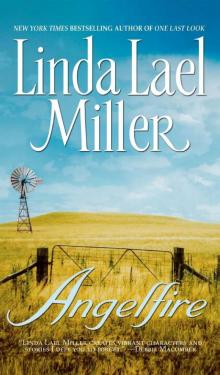 Angelfire
Angelfire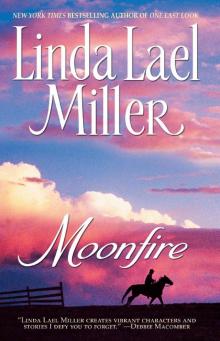 Moonfire
Moonfire The Yankee Widow
The Yankee Widow The Cowboy Way
The Cowboy Way Country Strong--A Novel
Country Strong--A Novel Forever and a Day
Forever and a Day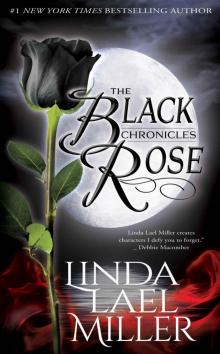 The Black Rose Chronicles
The Black Rose Chronicles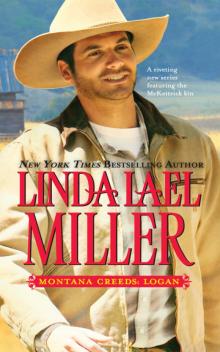 Montana Creeds: Logan
Montana Creeds: Logan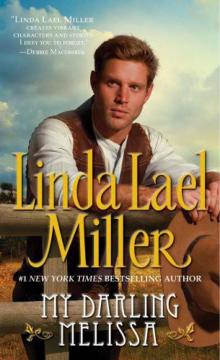 My Darling Melissa
My Darling Melissa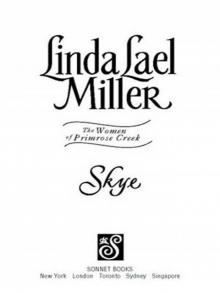 Skye
Skye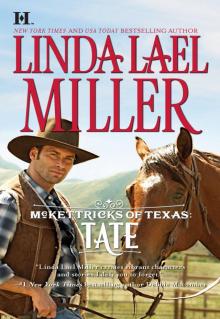 McKettricks of Texas: Tate
McKettricks of Texas: Tate Springwater Seasons
Springwater Seasons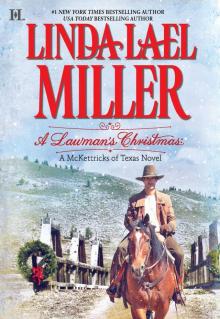 A Lawman's Christmas
A Lawman's Christmas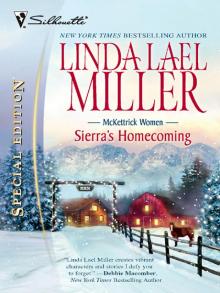 Sierra's Homecoming
Sierra's Homecoming![Parable, Montana [4] Big Sky Summer Read online](http://i1.bookreadfree.com/i/03/22/parable_montana_4_big_sky_summer_preview.jpg) Parable, Montana [4] Big Sky Summer
Parable, Montana [4] Big Sky Summer One Last Weekend
One Last Weekend A Stone Creek Collection, Volume 2
A Stone Creek Collection, Volume 2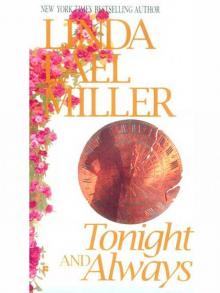 Tonight and Always
Tonight and Always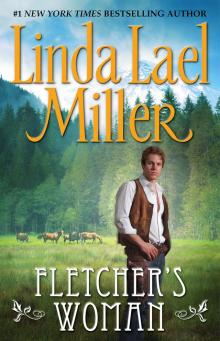 Fletcher's Woman
Fletcher's Woman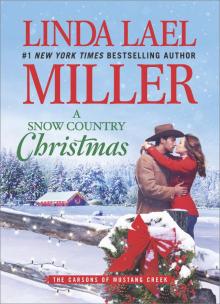 A Snow Country Christmas
A Snow Country Christmas The Last Chance Cafe
The Last Chance Cafe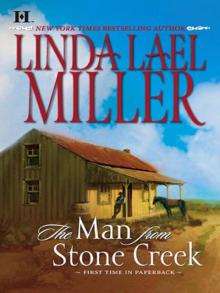 The Man from Stone Creek
The Man from Stone Creek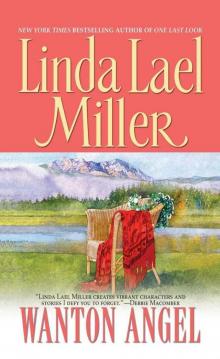 Wanton Angel
Wanton Angel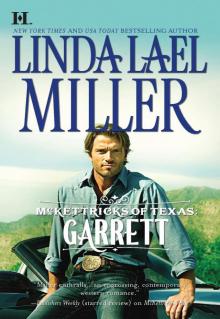 McKettricks of Texas: Garrett
McKettricks of Texas: Garrett Memory's Embrace
Memory's Embrace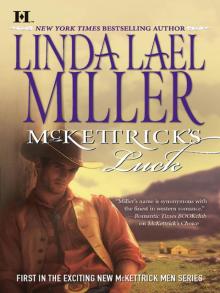 McKettrick's Luck
McKettrick's Luck Pirates
Pirates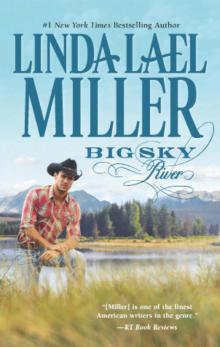 Big Sky River
Big Sky River Willow: A Novel (No Series)
Willow: A Novel (No Series)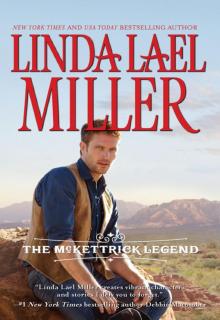 The McKettrick Legend: Sierra's HomecomingThe McKettrick Way (Hqn)
The McKettrick Legend: Sierra's HomecomingThe McKettrick Way (Hqn) Glory, Glory: Snowbound with the Bodyguard
Glory, Glory: Snowbound with the Bodyguard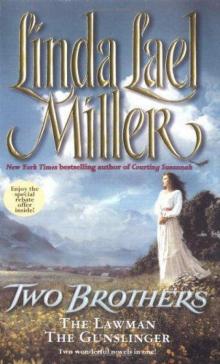 Two Brothers
Two Brothers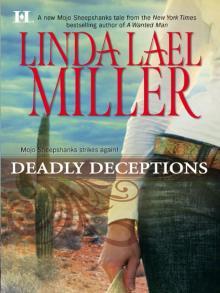 Deadly Deceptions
Deadly Deceptions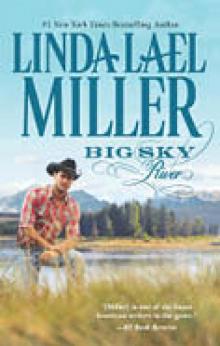 Big Sky Secrets
Big Sky Secrets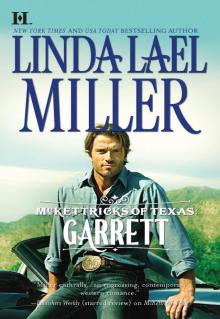 Garrett
Garrett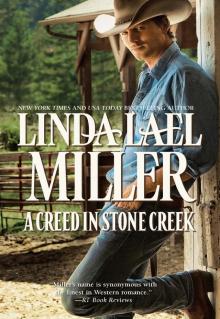 A Creed in Stone Creek
A Creed in Stone Creek Megan
Megan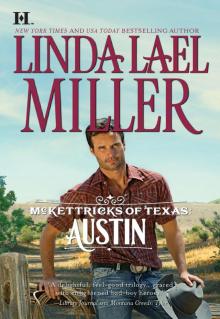 McKettricks of Texas: Austin
McKettricks of Texas: Austin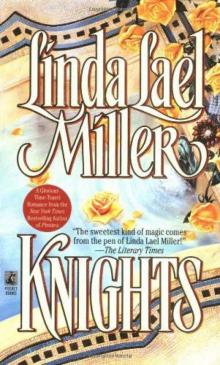 Knights
Knights High Country Bride
High Country Bride More Than Words Volume 4
More Than Words Volume 4 Glory, Glory
Glory, Glory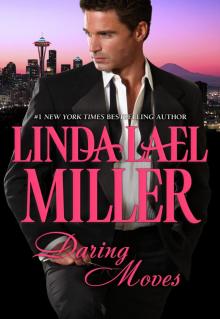 Daring Moves
Daring Moves Lily and the Major
Lily and the Major Courting Susannah
Courting Susannah Banner O'Brien
Banner O'Brien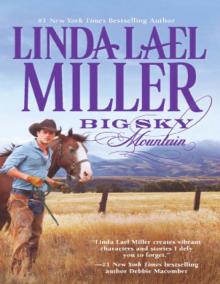 Big Sky Mountain
Big Sky Mountain Linda Lael Miller Bundle
Linda Lael Miller Bundle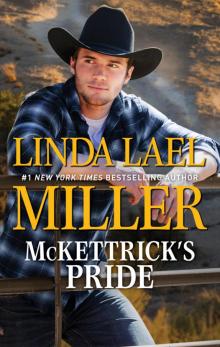 McKettrick's Pride
McKettrick's Pride A Stone Creek Collection Volume 1
A Stone Creek Collection Volume 1 A Wanted Man
A Wanted Man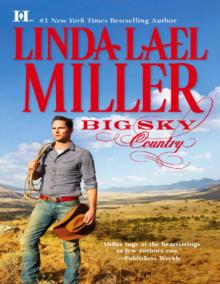 Big Sky Country
Big Sky Country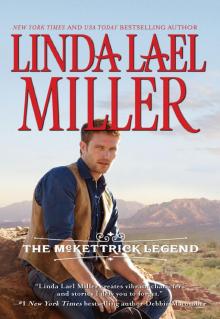 The McKettrick Legend
The McKettrick Legend Christy
Christy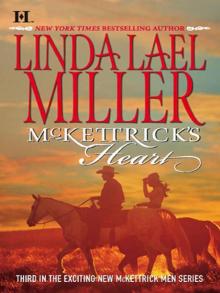 McKettrick's Heart
McKettrick's Heart Resurrection
Resurrection Arizona Heat
Arizona Heat Secondhand Bride
Secondhand Bride Snowflakes on the Sea
Snowflakes on the Sea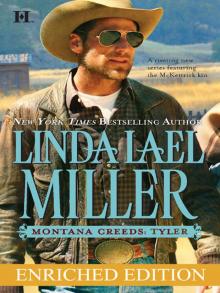 Montana Creeds: Tyler
Montana Creeds: Tyler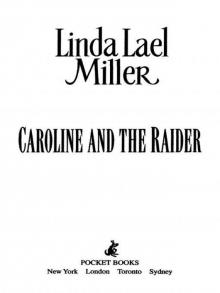 CAROLINE AND THE RAIDER
CAROLINE AND THE RAIDER A Proposal for Christmas: State SecretsThe Five Days of Christmas
A Proposal for Christmas: State SecretsThe Five Days of Christmas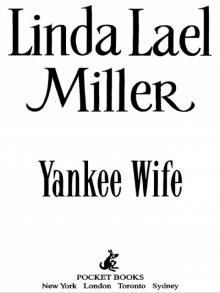 Yankee Wife
Yankee Wife Linda Lael Miller Montana Creeds Series Volume 1: Montana Creeds: LoganMontana Creeds: DylanMontana Creeds: Tyler
Linda Lael Miller Montana Creeds Series Volume 1: Montana Creeds: LoganMontana Creeds: DylanMontana Creeds: Tyler The Christmas Brides
The Christmas Brides McKettricks Bundle
McKettricks Bundle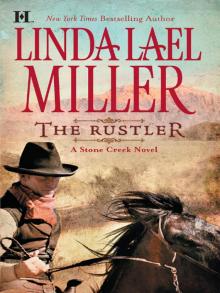 The Rustler
The Rustler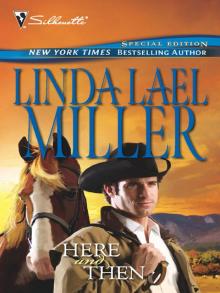 Here and Then
Here and Then Only Forever
Only Forever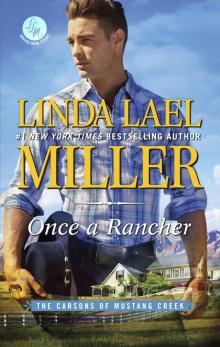 Once a Rancher
Once a Rancher The 24 Days of Christmas
The 24 Days of Christmas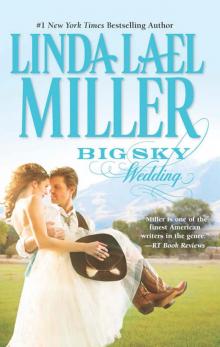 Big Sky Wedding
Big Sky Wedding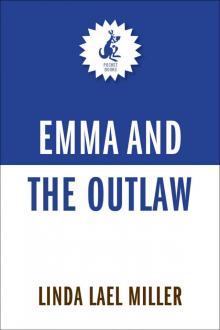 Emma and the Outlaw
Emma and the Outlaw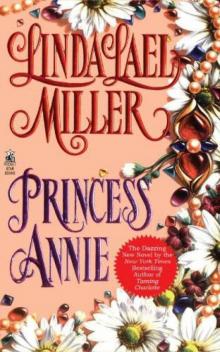 Princess Annie
Princess Annie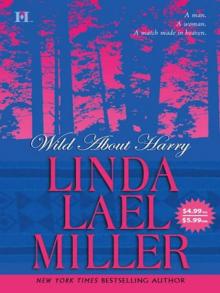 Wild About Harry
Wild About Harry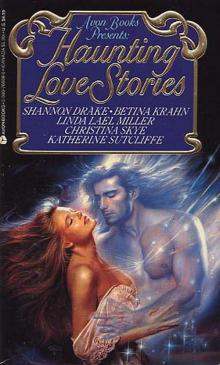 That Other Katherine
That Other Katherine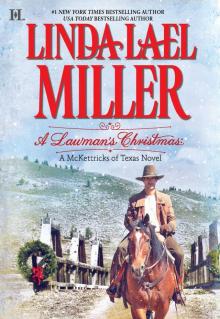 A Lawman's Christmas: A McKettricks of Texas Novel
A Lawman's Christmas: A McKettricks of Texas Novel Just Kate: His Only Wife (Bestselling Author Collection)
Just Kate: His Only Wife (Bestselling Author Collection)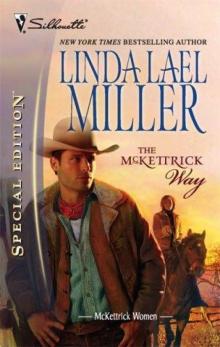 The McKettrick Way
The McKettrick Way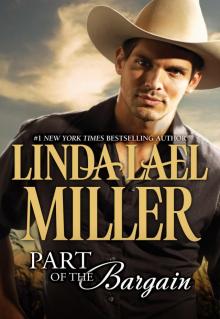 Part of the Bargain
Part of the Bargain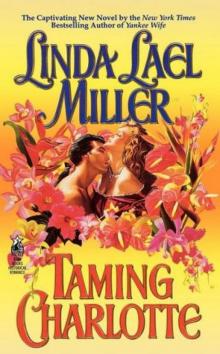 Taming Charlotte
Taming Charlotte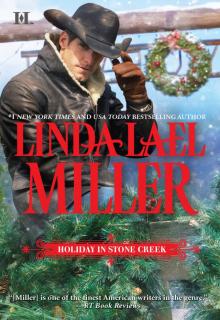 Holiday in Stone Creek
Holiday in Stone Creek One Last Look
One Last Look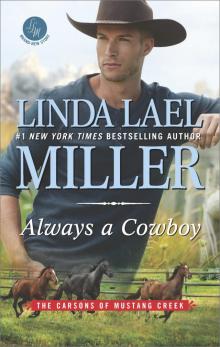 Always a Cowboy
Always a Cowboy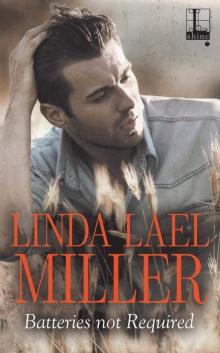 Batteries Not Required
Batteries Not Required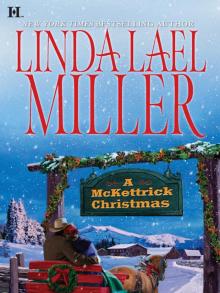 A McKettrick Christmas
A McKettrick Christmas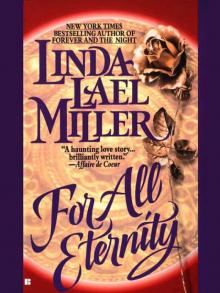 For All Eternity
For All Eternity The Marriage Season
The Marriage Season Corbin's Fancy
Corbin's Fancy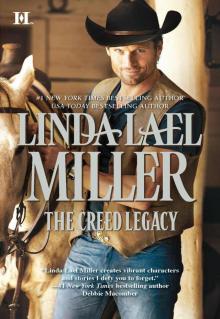 The Creed Legacy
The Creed Legacy Springwater Wedding
Springwater Wedding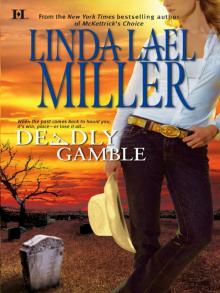 Deadly Gamble
Deadly Gamble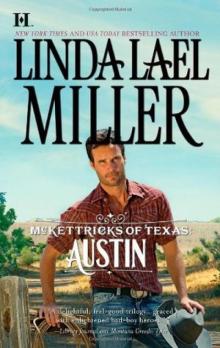 Austin
Austin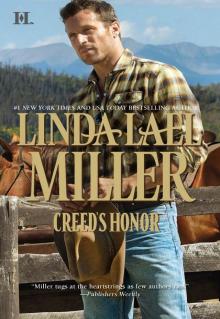 Creed's Honor
Creed's Honor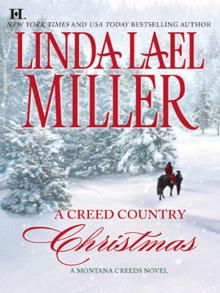 A Creed Country Christmas
A Creed Country Christmas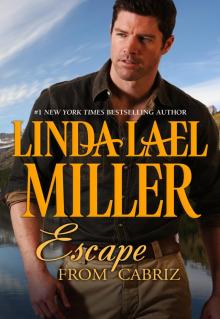 Escape from Cabriz
Escape from Cabriz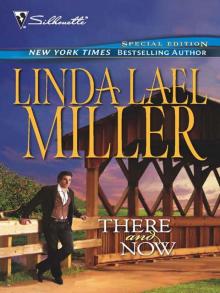 There and Now
There and Now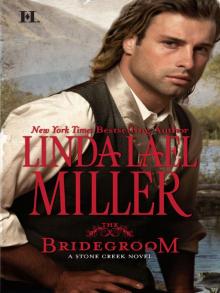 The Bridegroom
The Bridegroom State Secrets
State Secrets Bridget
Bridget